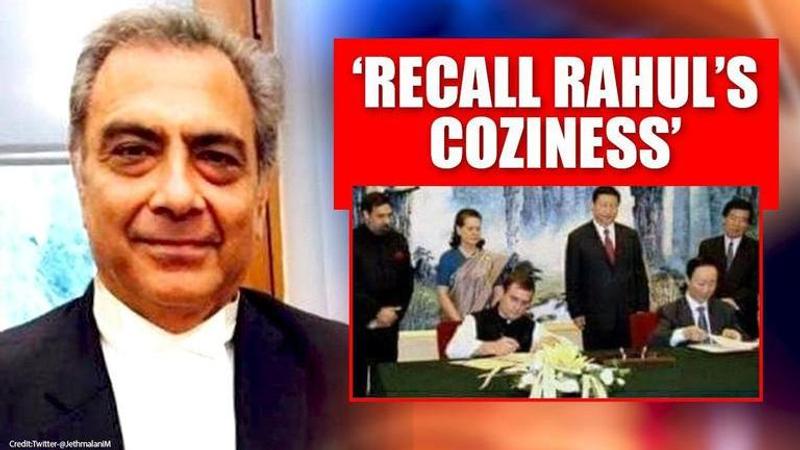Published 11:31 IST, August 11th 2020
'Rahul signed 2008 Congress-China memo with covert intelligence wing of CCP': Jethmalani
Mahesh Jethmalani has claimed that the memo of 2008 deal between Congress and China was signed by Rahul Gandhi with a "covert intelligence wing" of the CCP

Senior advocate Mahesh Jethmalani on Monday commenting on the alleged 'secret' agreement between Congress and the Communist Party of China claimed that the memo of 2008 was signed by Rahul Gandhi with a "covert intelligence wing" of the Chinese state apparatus which uses the country’s embassies abroad to achieve its end.
'A covert intelligence wing...'
Along with the link of an article by GoaChronicle.com, Jethmalani tweeted, "Recall Rahul's cosiness with the Chinese ambassador and the Chinese embassy's role in propping up OLI in Nepal."
Jethmalani quoted his remarks from this report which states that the International Liaison Department of CPC is an important and yet often overlooked unit of Beijing's power and influence under the Communist Party. "The department’s core objective is to use party-to-party contacts to help safeguard the country’s interests and facilitate state-to-state relations," it said.
'This is unheard of and absurd in law'
Meanwhile, last Friday, the Apex court had refused to entertain a PIL seeking NIA probe into the alleged 2008 agreement. A bench headed by Chief Justice S A Bobde asked senior lawyer Mahesh Jethmalani, appearing for PIL petitioners Shashank Shekhar Jha and journalist Savio Rodrigues, to withdraw the plea and approach the High Court.
"Every relief which you are seeking can be granted by the High Court. Secondly, the High Court is a proper court. Thirdly, we will have the advantage of High Court order also," said the bench which also comprised Justices A S Bopanna and V Ramasubramanian.
The top court, in the hearing conducted through video conferencing, allowed the petitioners to "withdraw the petition with liberty to approach the High Court." At the outset, Jethmalani alleged that it was an "agreement between a political party of this country with the only political party in that country (China)" and the issue pertained to national security.
"We find that there is something which appears to be, what might be called, unheard of and absurd in law. You are saying that China has entered into an agreement with a political party and not the government. How can a political party enter into an agreement with China," the bench observed?
The court said, "Within our limited experience, we have unheard of it that a political party is making an agreement with another country." Jethmalani argued that the alleged offences, if any disclosed, will be under the NIA Act and the Unlawful Activities Prevention Act and it will be better if the Supreme Court examine this as it relates to national security.
Updated 11:31 IST, August 11th 2020




